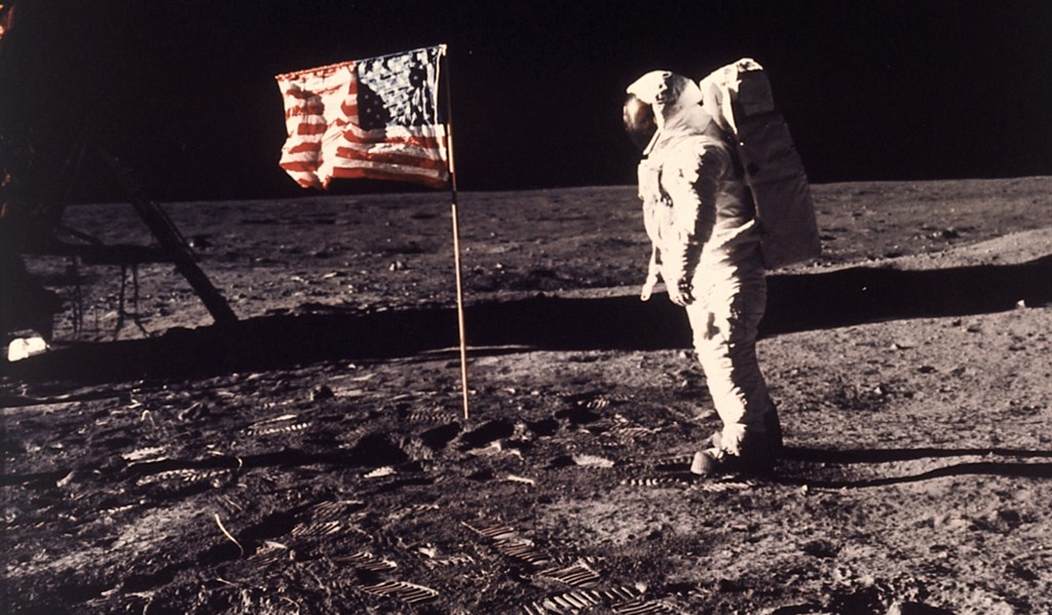Anyone who knows me knows that I’m a huge fan of the space program, particularly the Mercury, Gemini, and Apollo years. The idea that we put men on the moon continues to stagger my imagination, and the more I’ve learned over the years about the research, trial and error, and effort that it took to get men to the moon, the more it impresses me.
Even though it's been over 50 years since we stopped sending astronauts to the moon, we still refer to that feat as the ultimate human achievement. The Apollo program was an impressive accomplishment because teams of people made it happen less than a decade after the first American spaceflight using computing power that even the first-generation iPhones dwarfed.
A dozen men walked on the surface of a natural satellite nearly a quarter-million miles away. And even though we’re supposed to be in the process of making that happen again, nearly every time I see the moon, I marvel at the idea that we sent men up to it.
Sending men (and women) to the moon (and beyond) is impressive, but it doesn’t even hold a candle to the power that God has, and He demonstrated that power by sending His son to this planet as fully God and fully man.
“A reality infinitely more staggering than man walking on the moon is God walking on the earth,” said podcaster Barry Cooper in 2019. “Even more than that, God making His dwelling among us. And even more than that, God making His dwelling in us.”
“The entire space achievement is put in proper perspective when one realizes that God walking on the earth is more important than man walking on the moon,” wrote Apollo 15 astronaut James Irwin in his 1983 book “More Than Earthlings: An Astronaut's Thoughts for Christ-Centered Living.” (Jim Irwin was friends with my grandfather, and I met him when I was really young. He gave me an autographed photo of himself on the moon, and although I don’t remember that meeting, I credit it with turning me into the space program nut that I am today.)
Related: Sunday Thoughts: Advent, Salvation, and Repentance
We just finished celebrating Christmas, so the words of the prophet Isaiah should be fresh on our minds: “Therefore the Lord himself will give you a sign. Behold, the virgin shall conceive and bear a son, and shall call his name Immanuel” (Isaiah 7:14, ESV). The Apostle Matthew referenced this prophecy in his account of the birth of Jesus.
In the majestic prelude to his gospel, the Apostle John wrote, “And the Word became flesh and dwelt among us, and we have seen his glory, glory as of the only Son from the Father, full of grace and truth” (John 1:14, ESV). The Apostle Paul reminded us that Jesus, “though he was in the form of God, did not count equality with God a thing to be grasped, but emptied himself, by taking the form of a servant, being born in the likeness of men. And being found in human form, he humbled himself by becoming obedient to the point of death, even death on a cross” (Philippians 2:6-8, ESV).
And even though Jesus only lived on Earth in human form for a little over 30 years, He left the Holy Spirit to dwell within all those who call upon His name. The evening before He went to the cross, He told the disciples, “These things I have spoken to you while I am still with you. But the Helper, the Holy Spirit, whom the Father will send in my name, he will teach you all things and bring to your remembrance all that I have said to you” (John 14:25-26, ESV). As the author of Hebrews reminded his readers (and us today), Jesus said, “I will never leave you nor forsake you” (Hebrews 13:5, ESV).
“How can an infinitely holy God dwell with His people when they’ve constantly ruined themselves by rebelling against Him?” Cooper asked. “Why would He even choose to dwell with them, given He has no need to? But He does.”
Let that sink in. And let it fill you with awe, gratitude, and worship.










Join the conversation as a VIP Member